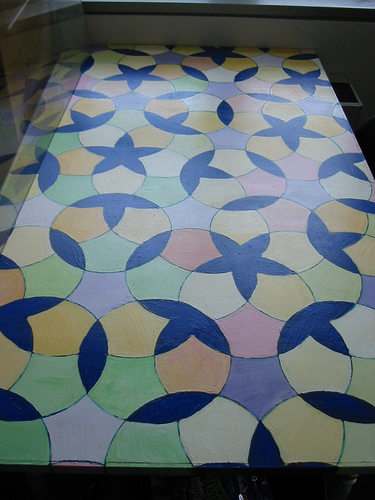
Andrew Gelman writes:
The article [about economics professor David Galenson] then quotes art professor Michael Rushton as saying that in science or art, “innovation really requires a market.” Huh? Wha?? Tell that to my friend Seth, who spent 10 years self-experimentation. Heck, tell that to the cave painters. Or check out the American Visionary Art Museum.
I agree. I was able to do self-experimentation for 10 years because I didn’t have to sell, i.e., publish it. Not having to sell — I mean publish — it gave me the freedom to do and think whatever I wanted for as long as I wanted.
Innovation benefits not from markets but from subsidies, which provide time to experiment. In my case, I was a professor at Berkeley — subsidized by the State of California. I had tenure and free time. Sometimes the subsidies aren’t obvious. Part of my theory of human evolution is that gifts, ceremonies, holidays, fashion, and connoisseurs, not to mention love of art, subsidized artists and artisans by providing a desire for work that — in the absence of gifts, etc. — would be much harder to make a living from. Helping artists and artisans make a living helped them advance their technology. Cave paintings may have been part of a holiday observance — the artists took time off from hunting. Before trade, Thorstein Veblen’s Instinct of Workmanship motivated innovation. Andrew himself built the table in the above photo for reasons that had nothing to do with markets.
But at least an economics professor is studying innovation. A few years ago in the Berkeley Public Library I picked up an introductory economics textbook. Six or seven hundred pages. Half a page on innovation!
Thanks for the correction. In the case of the “markets” quote, I think the guy who said it was reflecting the common belief among economists that markets are very powerful and can solve all sorts of problems. So it wasn’t so much the person who said it being mistaken (“silly”) as it was/is most of his profession — and if so “silly” is probably the wrong word. You were like the child in The Emperor Has No Clothes.
As for the “economists are different” quote I disagree. What she said was true — economists do have different beliefs and starting points than anthropologists, sociologists, psychologists, etc. — and I think it’s helpful to point out the differences.
Haha! You’re right, she carefully distinguished her cohort (academics, who have big important cultural differences) from the cohort under study (who don’t).
I think it is silly to assume that innovation requires markets. A Crusoe economics thought experiment would certainly show that ole Robinson would be able to create something that he had no prior knowledge of (innovation) in response to his needs. I would think that a market usually defines voluntary relations between more than one party – so even though the market expresses needs, the fact that one has needs does not denote they exist in a market. Since Robinson would surely be able to create something in response ot his own needs on a deserted island – innovation does not require markets – only needs.
Regular Economists cannot properly model this with their mathematical functions, so they just state things as fact without proper backup.
Innovation benefits not from markets but from subsidies, which provide time to experiment. In my case, I was a professor at Berkeley — subsidized by the State of California. I had tenure and free time.
You are subsidized by the taxpayers of the State of California, not the State of California.